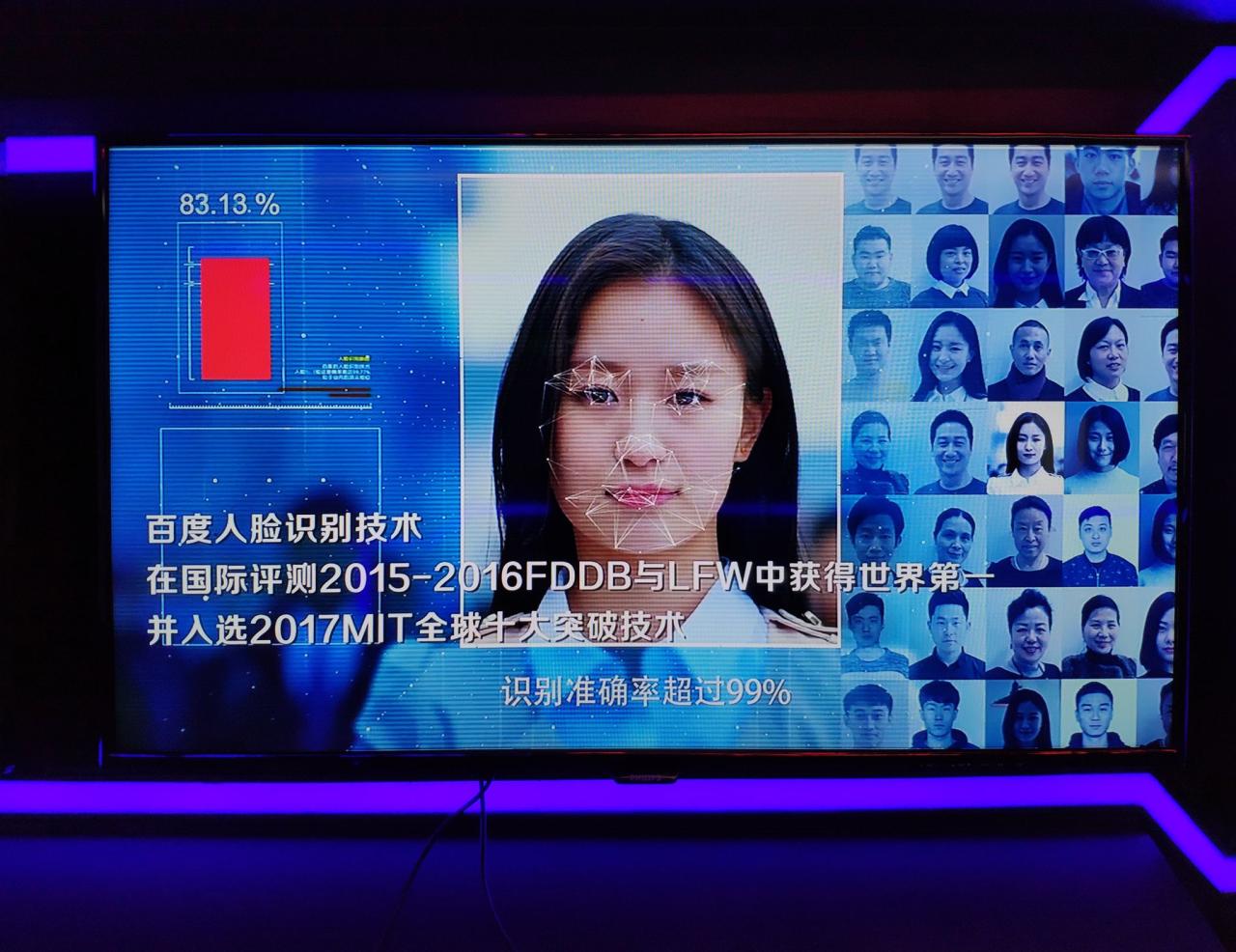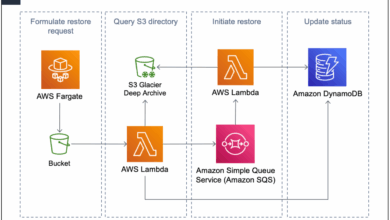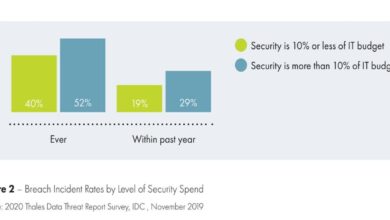
China Asks Apple to Bolster Data Security
China asks Apple to bolster its data security and privacy protections – a headline that’s sent ripples through the tech world! This isn’t just another regulatory hurdle; it’s a fascinating clash between a global tech giant and a nation prioritizing data sovereignty. The Chinese government has voiced serious concerns about Apple’s data handling practices, prompting speculation about potential changes to Apple’s security infrastructure and the implications for both users and the company’s bottom line in a crucial market.
This situation raises critical questions about the balance between national security, user privacy, and the global reach of powerful tech companies. Will Apple comply, potentially setting a precedent for other nations? What compromises might be necessary, and what are the potential economic and political consequences? Let’s dive into the details and explore the possible outcomes of this high-stakes game of global tech politics.
China’s Concerns Regarding Apple’s Data Security and Privacy

China’s request for Apple to bolster its data security and privacy protections stems from a complex interplay of national security concerns, economic interests, and a growing awareness of data privacy rights among its citizens. The Chinese government’s anxieties aren’t simply about hypothetical vulnerabilities; they are rooted in a desire to control data flow within its borders and ensure the safety of its citizens’ information.
Specific Data Security and Privacy Concerns
The Chinese government’s concerns center on several key areas. Firstly, there are worries about the potential for unauthorized access to sensitive user data stored on Apple devices and servers. This includes personal information, communications, and potentially even state secrets, should government officials or employees use Apple products. Secondly, concerns exist regarding the potential for backdoors or vulnerabilities in Apple’s software and hardware that could be exploited by foreign governments or malicious actors.
Finally, the lack of transparency surrounding Apple’s data handling practices, particularly concerning data storage location and access protocols, fuels distrust. The Chinese government desires greater control and oversight of data within its jurisdiction.
Potential Vulnerabilities in Apple’s Security Infrastructure
While Apple boasts robust security measures, certain aspects of its infrastructure may be perceived as vulnerable by the Chinese government. The reliance on cloud services hosted outside of China raises concerns about data sovereignty and potential interception. The use of encryption, while enhancing security, can also present challenges for law enforcement agencies seeking access to data for investigations.
Furthermore, the global nature of Apple’s operations and supply chain creates potential points of vulnerability that could be exploited. Any weakness, real or perceived, can be amplified in the context of national security.
Examples of Past Incidents Informing China’s Request
While no specific major breaches directly targeting Apple in China have been publicly confirmed, the global landscape of data breaches and cyberattacks informs China’s concerns. High-profile incidents involving other tech companies, even those unrelated to Apple, highlight the potential for significant data leaks and the subsequent damage to national security and individual privacy. These incidents serve as cautionary tales, reinforcing the need for robust security measures.
The Snowden revelations, for example, highlighted the potential for mass surveillance and the importance of data protection, regardless of the specific company involved.
Comparison with Other Tech Companies Operating in China
Apple’s data security and privacy practices are often compared to those of other multinational tech companies operating in China. Some Chinese companies may have more stringent data localization requirements or stricter internal controls, though this may also come with trade-offs in terms of user experience or innovation. The Chinese government’s approach to data security and privacy is evolving, and the regulatory landscape continues to change, creating a complex environment for all tech companies, including Apple.
The comparison isn’t about which company is “better” but rather about aligning practices with China’s specific national security and data sovereignty objectives.
Apple’s Response and Potential Actions
Apple’s response to China’s request for enhanced data security and privacy protections will likely involve a multi-pronged approach balancing its commitment to user privacy with the need to comply with evolving governmental regulations in a key market. This delicate balancing act will require significant investment and strategic decision-making.The potential actions Apple could take are numerous and complex, encompassing technological upgrades, policy changes, and potentially even alterations to its business model within China.
The company faces a challenging situation where non-compliance could severely impact its market share, while overly aggressive compliance might alienate users concerned about potential government overreach.
China’s request for Apple to improve data security highlights the growing global concern over digital privacy. This push for stronger protections underscores the importance of robust cloud security solutions, like those discussed in this insightful article on bitglass and the rise of cloud security posture management. Ultimately, Apple’s response will set a precedent for other tech giants facing similar demands for enhanced data safeguards.
Technological Solutions for Enhanced Data Security and Privacy, China asks apple to bolster its data security and privacy protections
To address China’s concerns, Apple could implement several technological solutions. These would likely focus on data localization, encryption enhancements, and improved transparency regarding data handling practices. For example, Apple could invest in more robust encryption methods for data stored on Chinese servers, potentially utilizing techniques like homomorphic encryption which allows computations on encrypted data without decryption. They could also enhance their existing data anonymization techniques to further protect user identities.
Furthermore, a more transparent data usage policy, clearly outlining what data is collected, how it’s used, and with whom it’s shared, would foster trust. This could include detailed explanations of data transfer protocols and security measures in place.
China’s request for Apple to boost data security got me thinking about app development’s evolution. Building secure apps quickly is crucial, and that’s where platforms like Domino shine, offering a glimpse into the future described in this article on domino app dev the low code and pro code future. The speed and efficiency these platforms provide are key to meeting the increasing demands for robust data protection, especially in light of China’s concerns regarding Apple’s security practices.
Economic and Political Implications of Compliance
Complying with China’s request will have significant economic and political implications for Apple. While it might maintain access to the lucrative Chinese market, it could face criticism from privacy advocates globally who might perceive this as a compromise on its core values. Economically, increased investment in data security infrastructure and compliance efforts will undoubtedly increase costs. However, maintaining a strong presence in China, a crucial market, could outweigh these costs.
Politically, Apple could be seen as setting a precedent for other tech companies operating in China, potentially influencing how other governments approach data security and privacy regulations. The situation presents a complex geopolitical dilemma for Apple, requiring careful navigation of conflicting interests.
Balancing User Privacy with Government Regulations
The central challenge for Apple is striking a balance between user privacy and government regulations. This requires a sophisticated approach that acknowledges the legitimate concerns of both users and the Chinese government. For instance, Apple could explore methods for data localization that also preserve a high level of user privacy through strong encryption and access controls. This might involve establishing independent oversight mechanisms to ensure compliance with regulations while protecting user data.
The challenge lies in creating a system that is both transparent and effective in safeguarding user data without compromising the functionality or user experience of its products and services. This might involve developing new technological solutions and engaging in ongoing dialogue with both users and regulators to build trust and transparency. The success of this balancing act will significantly impact Apple’s reputation and long-term sustainability in the Chinese market and globally.
Impact on Apple’s Business in China: China Asks Apple To Bolster Its Data Security And Privacy Protections

Apple’s substantial presence in China makes it highly vulnerable to government regulations. The request to bolster data security and privacy protections presents both significant risks and potential opportunities for the company, impacting its market share, revenue, and global brand image. The outcome will depend heavily on Apple’s response and the long-term implications of complying with these new demands.The potential impact on Apple’s revenue and market share in China is considerable.
China is a crucial market for Apple, contributing significantly to its overall global sales. Increased compliance costs, potential delays in product launches due to regulatory hurdles, and even boycotts by consumers who perceive Apple as overly compliant with government demands could all negatively impact Apple’s bottom line. Conversely, demonstrating a proactive commitment to data security and privacy could enhance consumer trust and even attract new customers who prioritize these issues.
The delicate balancing act between appeasing the Chinese government and maintaining its global brand image will be critical.
Potential Risks and Opportunities
Increased scrutiny of Apple’s data handling practices could lead to fines, restrictions on sales, or even a complete ban on certain products or services in China. This represents a significant financial risk. However, successfully navigating these regulatory challenges could position Apple as a responsible corporate citizen in China, leading to improved relationships with the government and potentially even preferential treatment in future policy decisions.
This could open doors for new business opportunities and partnerships within the Chinese market. The situation is complex, with a high-stakes gamble involved. For example, similar situations with other tech giants operating in China have shown that compliance with local regulations can be costly, but non-compliance can be even more detrimental.
Impact Analysis: Benefits and Drawbacks of Compliance
The following table compares the potential benefits and drawbacks of Apple complying with China’s request:
| Benefit/Drawback | Description | Impact on Users | Impact on Apple |
|---|---|---|---|
| Enhanced User Trust | Demonstrates commitment to user data protection, potentially increasing user confidence and loyalty. | Increased sense of security and privacy; potentially higher user satisfaction. | Improved brand reputation, potentially increased sales and market share. |
| Reduced Regulatory Risk | Minimizes the risk of fines, restrictions, or bans imposed by the Chinese government. | More stable access to Apple products and services. | Avoidance of significant financial losses and operational disruptions. |
| Increased Compliance Costs | Requires significant investment in new technologies, infrastructure, and personnel to meet the enhanced data security and privacy requirements. | Potentially higher prices for Apple products and services. | Reduced profitability, potentially impacting shareholder value. |
| Potential for Data Localization Concerns | Storing data within China may raise concerns about access by the Chinese government and potential violations of user privacy. | Concerns about government surveillance and data breaches. | Reputational damage, loss of user trust, and potential legal challenges. |
Impact on Apple’s Global Brand Image
Apple prides itself on its commitment to user privacy, a key element of its global brand image. Complying with China’s request could create a perception of inconsistency, potentially damaging its reputation among users and stakeholders who value data protection. This is particularly true in Western markets, where strong data privacy regulations and consumer awareness are prevalent. Balancing the need to maintain its market share in China with the potential damage to its global brand image is a major challenge for Apple.
Any perceived compromise on user privacy could lead to negative publicity and a loss of trust from consumers worldwide. The situation requires careful navigation and transparent communication to mitigate potential reputational risks.
Geopolitical Implications
China’s demand for enhanced data security and privacy protections from Apple carries significant geopolitical weight, extending far beyond a simple corporate-government dispute. It highlights the growing tension between national security concerns and the globalized nature of the tech industry, particularly in the context of the increasingly strained US-China relationship. Apple’s response, and the broader implications, will serve as a significant case study for how multinational corporations navigate the complexities of operating within increasingly assertive nation-states.This situation underscores a broader trend of governments worldwide seeking greater control over data within their borders.
We’ve seen similar instances in India, where data localization policies have been implemented, and in the European Union with the General Data Protection Regulation (GDPR). However, the scale and potential impact of China’s request are particularly noteworthy due to the sheer size of its market and its strategic importance in the global tech landscape. The pressure exerted by China on Apple is arguably more forceful than what many other nations have been able to exert, given the significant revenue generated by Apple within China.
Comparative Analysis of Government Intervention in the Tech Sector
The Chinese government’s actions regarding Apple’s data practices can be compared to similar interventions in other countries, but with key differences. While the EU’s GDPR aims to protect citizen’s data rights, China’s request appears to be more focused on national security and control over information. India’s data localization policies, while aimed at protecting its own data, also serve to promote domestic tech companies.
These differences highlight the varying motivations and approaches behind government interventions, ranging from data privacy concerns to economic nationalism and national security considerations. The approach taken by each country reflects its unique political and economic priorities.
Potential Scenarios and Consequences
Several scenarios could unfold following China’s request.
- Scenario 1: Apple fully complies. This could lead to the creation of a “China-specific” data infrastructure, potentially setting a precedent for other countries to demand similar concessions. It could also negatively impact Apple’s global data security and privacy standards, potentially leading to inconsistencies across different regions.
- Scenario 2: Apple partially complies. A compromise might involve implementing enhanced security measures in China while maintaining its global standards elsewhere. This would likely be a delicate balancing act, potentially incurring significant costs and logistical challenges.
- Scenario 3: Apple resists. This could result in significant market access challenges in China, including potential fines, regulatory hurdles, and reputational damage. It could also escalate tensions between the US and China.
The consequences of each scenario are far-reaching and interconnected, affecting not only Apple but also the broader tech industry and the geopolitical landscape.
Impact on US-China Relations
The outcome of this situation will undoubtedly have a significant impact on US-China relations. Apple’s response, whether compliant or resistant, will be closely scrutinized by both governments. A strong response from Apple could be interpreted as defiance, potentially escalating tensions. Conversely, full compliance could be seen as a concession, potentially emboldening China to make similar demands on other US companies.
The situation further complicates the already strained relationship between the two superpowers, adding another layer to the ongoing technological and economic competition. This case could serve as a pivotal moment, demonstrating the extent to which technology is now intertwined with geopolitical power plays. Similar situations have been observed in the past, such as the trade war, illustrating how technological disputes often become intertwined with broader geopolitical tensions.
User Privacy and Data Sovereignty
The recent request from China for Apple to enhance its data security and privacy protections highlights a critical issue: data sovereignty. This isn’t simply about protecting user data; it’s about where that data resides, who has access to it, and under which legal jurisdiction it falls. The tension between national security concerns, user privacy rights, and the global reach of technology giants like Apple forms the core of this complex debate.Data sovereignty refers to the principle that countries have the right to regulate the collection, storage, processing, and use of data within their borders.
This situation underscores the clash between China’s desire to control data within its territory and Apple’s global operations, which necessitate a standardized approach to data handling. The implications for users are significant, particularly concerning the balance between national security and individual liberties.
Data Sovereignty’s Impact on User Privacy in China
The requested changes could significantly impact user privacy in several ways. For instance, increased government access to user data, even with ostensibly strong encryption, could erode trust and lead to self-censorship. Mandated data localization, requiring Apple to store Chinese user data within China, could increase the risk of data breaches due to potentially less stringent security standards or greater vulnerability to government surveillance.
Furthermore, the lack of transparency regarding government access to data could foster an environment of uncertainty and fear, chilling free expression and online activity. The potential for misuse of data for purposes beyond legitimate law enforcement is also a serious concern. Consider, for example, the potential for profiling based on browsing history or communications data to target dissidents or those deemed to be politically undesirable.
Hypothetical User Privacy Policy Balancing Government Regulations and User Rights
A balanced approach requires a privacy policy that respects both government regulations and user rights. Such a policy would need to be transparent, clearly outlining data collection practices, storage locations, and the circumstances under which data may be accessed by government authorities. It should incorporate robust encryption and data anonymization techniques to protect user privacy. Independent audits of data security and compliance with the policy would be crucial to build user trust.
Furthermore, a robust redressal mechanism for users who believe their privacy has been violated should be established. This could include the right to access, correct, and delete personal data, as well as avenues for legal recourse. The policy should also specify limitations on government access to data, ensuring that such access is subject to judicial oversight and adheres to strict legal requirements.
For example, it could stipulate that government access is limited to cases of serious crime or national security threats, with specific warrants and judicial approval required in each instance.
Arguments For and Against Increased Government Oversight of Data Security and Privacy
Arguments for increased government oversight often center on national security and public safety. Proponents argue that governments have a legitimate interest in preventing crime and terrorism, and access to data can be a valuable tool in these efforts. They may also point to the need to protect critical infrastructure and prevent data breaches that could harm national interests.
However, arguments against increased oversight emphasize the potential for abuse and the erosion of fundamental rights. Critics highlight the risk of surveillance, censorship, and the chilling effect on free speech and expression. Concerns about the lack of transparency and accountability in government data access practices are also frequently raised. The balance between these competing interests remains a significant challenge, demanding careful consideration of both the benefits and risks of increased government involvement in data security and privacy.
Conclusive Thoughts
The request from China for Apple to strengthen its data security and privacy measures highlights the growing tension between global tech companies and national governments seeking to control data within their borders. Apple’s response will be pivotal, setting a precedent for how multinational corporations navigate the complex landscape of data sovereignty and international regulations. The outcome will significantly impact not only Apple’s future in China but also the broader debate surrounding user privacy and national security in the digital age.
It’s a story that will continue to unfold, with far-reaching implications for all of us.
FAQ Overview
What specific vulnerabilities are China concerned about?
While specifics haven’t been publicly released, concerns likely revolve around potential backdoors for government access, data encryption weaknesses, and the potential for unauthorized access to user data stored on Apple devices and servers.
How might this affect Apple’s global brand image?
Compliance could be seen as bowing to censorship, potentially damaging Apple’s image among users who value privacy and freedom of information. However, non-compliance could harm Apple’s access to the lucrative Chinese market.
What are some examples of technological solutions Apple could implement?
Enhanced encryption, improved data anonymization techniques, greater transparency in data handling practices, and independent audits of security systems are all possibilities.
Could this lead to similar requests from other countries?
Absolutely. This situation sets a precedent, and other governments may follow suit, demanding similar levels of data control and access from tech companies operating within their borders.





